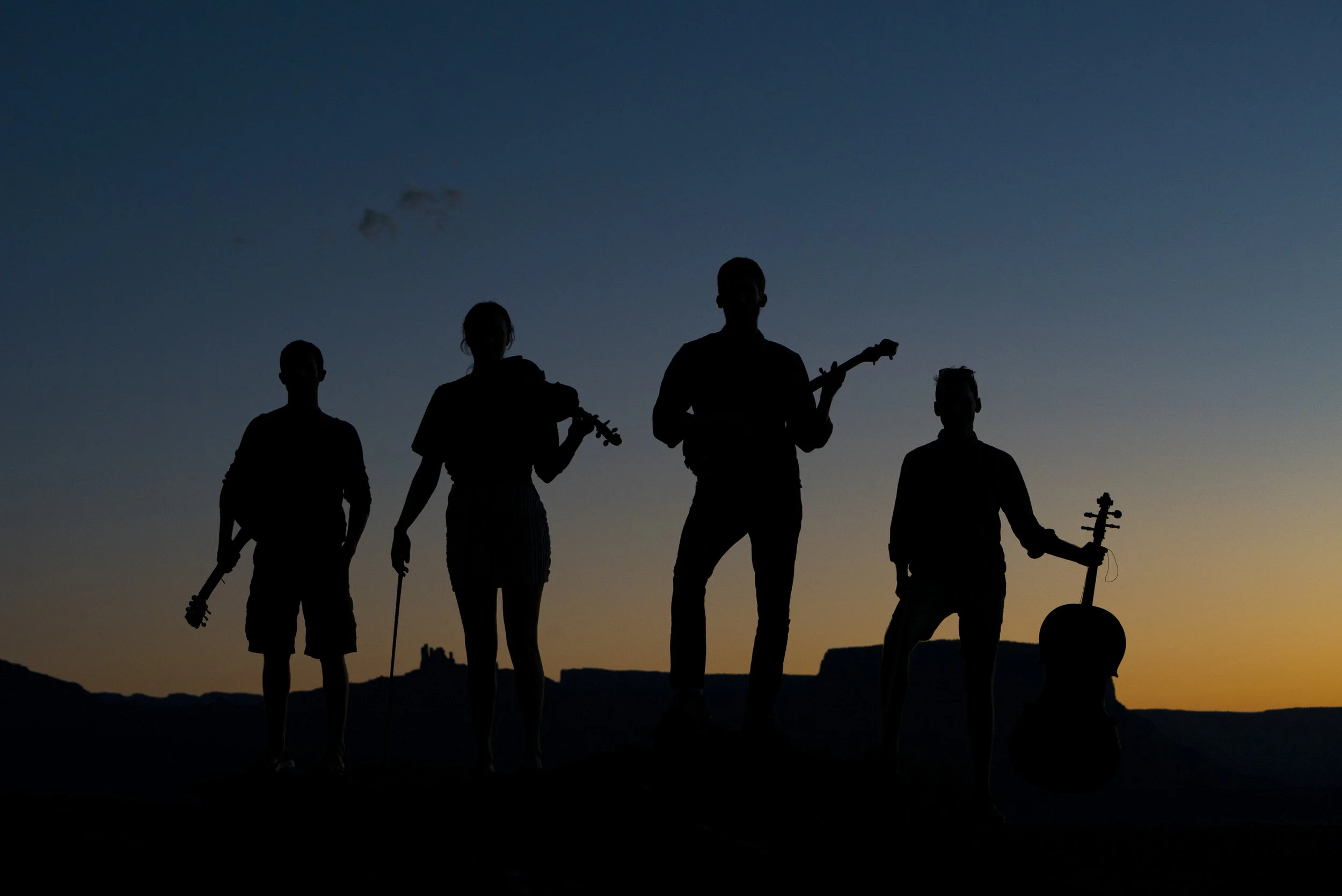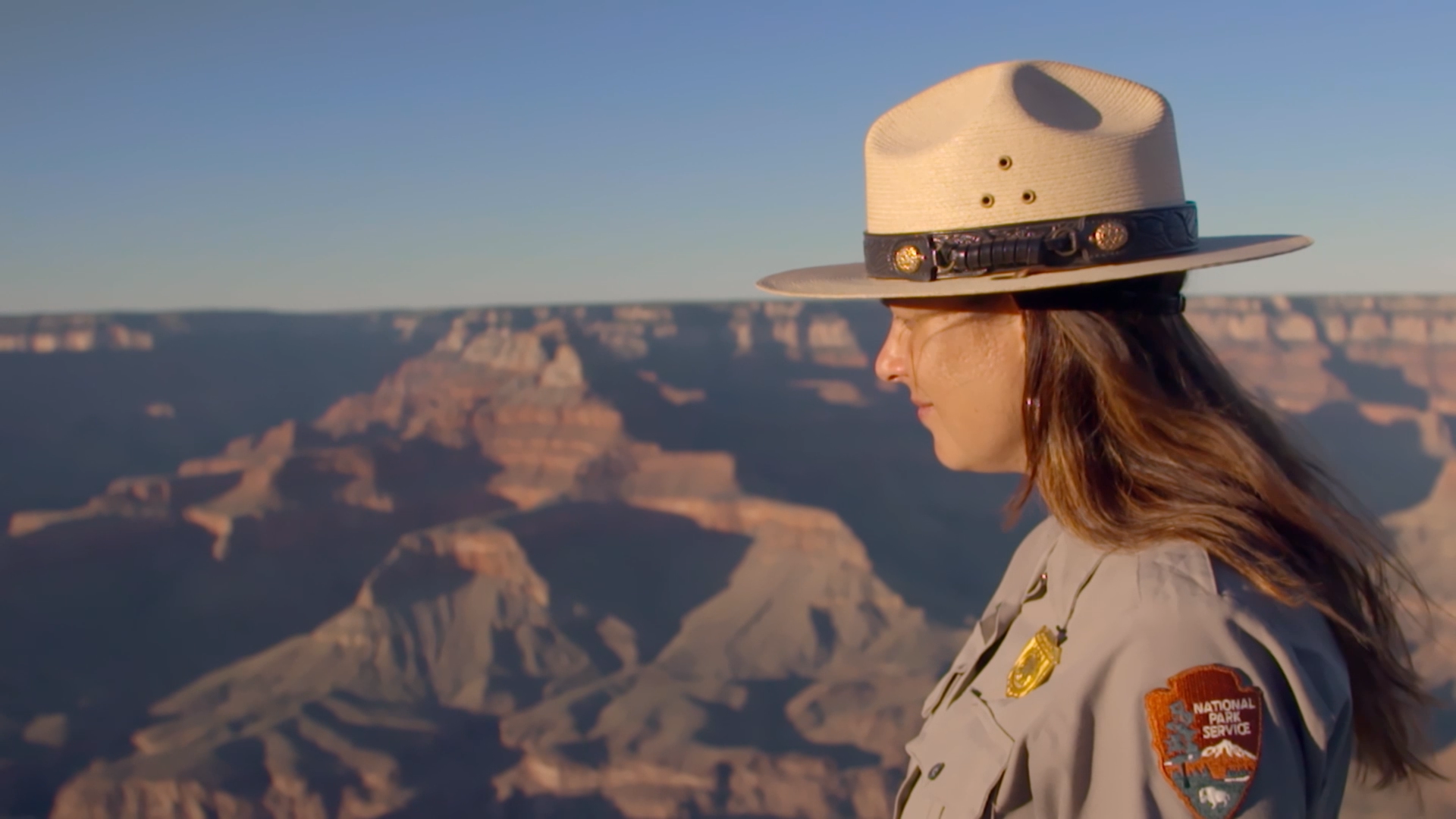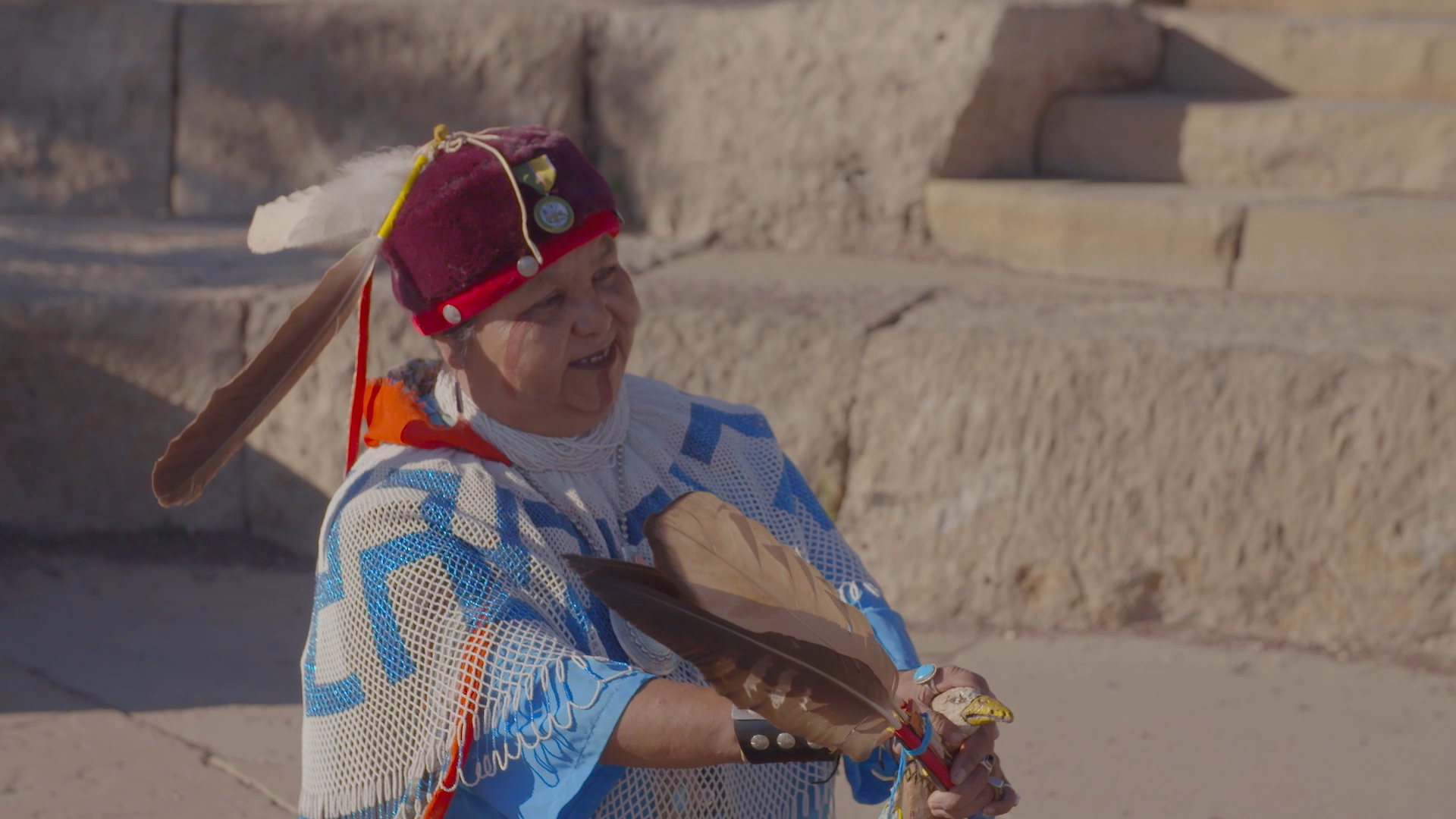
"The young musicians in this film are a reminder of the important roles art and nature play in making the world a better place."
- Robert Redford
About
In the fall of 2016, the centennial anniversary of the National Park Service, the four members of the indie folk band “The Infamous Flapjack Affair” set out on a journey through the public lands of the Colorado River Basin. Their goal: to meet people who have crafted their lives in the Basin; to hear their stories about the places they love and the challenges that face those places; and to write music inspired by those encounters.
From the rim of the Grand Canyon to a ranch in Northwest Colorado, from the contended lands of Bears Ears National Monument and the awe-inspiring vistas of Canyonlands to the sweeping alpine forests of Rocky Mountain National Park, from the banks of the free-flowing Yampa River in Dinosaur National Monument to the imposing Glen Canyon Dam, Confluence explores one of the world's most important, most spectacular, and most endangered river systems.
This film paints the Colorado River as a metaphorical confluence of ecological regions, diverse human cultures, and intense controversy over the use of land and resources. The people the band meet -- an NPS ranger, a Havasupai medicine woman, a Navajo musician, a Colorado rancher, and a USGS scientist -- all leave their mark on what becomes a profound and moving story of human connection to place. Music may be just the tool we need to inspire a new conversation, to let our public lands unite us instead of dividing us.


CHARACTERS
The infamous Flapjack Affair
"When we leave this place / when we journey on / we'll be thankful to have breathed at all / to raise our voice in song.”
FROM “SPINE”
Formed in 2013, The Infamous Flapjack Affair is an indie folk quartet comprised of Sarah Noyce (Sheffield, UK - lead vocals, violin, guitar, mandolin), Ben Barron (Boulder, CO - lead vocals, banjo, guitar), James Mitchell (Tulsa, OK - cello, vocals), and David Carel (Philadelphia, PA - guitar, mandolin, vocals). IFA has toured in the United States, United Kingdom, and South Africa, bringing their characteristic inventive arrangements, tight harmonies, and instrumental virtuosity to an ever-wider audience. In addition to their love of music, the four band members share a love of the outdoors. Confluence was born as a way to use music to start a safe dialogue about contentious environmental issues.
Amala Posey - NPS Park ranger
"When you can read the lines of the land / this place is a classroom with lessons to teach. / I am small but also empowered, / raised by wonder to listen and reach."
FROM “CANYON WREN”
Amala, who focuses on youth engagement within Grand Canyon National Park, sees the canyon as not only a wondrous landscape but also an educational tool. In addition to sharing the song of her favorite bird, the canyon wren, with the band (which became a featured melody), Amala spoke of the importance of listening to and respecting the first nations people who called the Canyon home long before it was a national park. “We have eleven traditionally associated tribes who have lived here for up to twelve thousand years, and the longer that we go without listening to them and taking into account their lessons learned, we won’t get anywhere.”
Dianna uqualla - medicine woman
"She knows the pain of a mother. / She bears the weight of the real. / She knows we have power / to hurt but also to heal."
FROM “SPINE”
Dianna is a medicine woman with the Havasupai tribe who met with the members of IFA on the South Rim of the Grand Canyon to teach them about the canyon’s first nation history. The Havasupai people were forcibly moved from their land to make room for Grand Canyon National Park in 1919. Dianna encouraged the band members – and by extension, all people – to examine what skills they had to heal the wounds caused by centuries of cultural and environmental mistreatment. We must protect the Colorado River, she said, because “the river is the spine of the Mother.”
Kyle Monger - Rancher
"If nothing else, as you go, / As you make your way, / hear this: / Go and light up the world.”
FROM “WIDE WATER”
After chasing an acting career in Hollywood, Kyle came back to the Yampa River Valley in Colorado to help his sister, Tyra, maintain the ranch that has been in their family for generations. The Monger family shared their hospitality with the band, as well as their concerns about land and water use on the Yampa, the Colorado's last major free-flowing tributary. Kyle took no issue with people moving in and living the lives they want to live, stating that in return he and his sister “just want people to respect the history, and the heritage, and what we’re all about too, you know?”
Pete sands - Country Musician
"No black or white. / All bends to gray.”
FROM “WIDE WATER”
Pete Sands, a country musician and member of the Navajo nation, grew up in Utah’s Bears Ears region, an area that five First Nations consider sacred. Former President Barack Obama named a national monument only to have its borders shrunk by 85 percent by President Donald Trump during his first year in office. Pete, who supports the monument, sends a clear message about the threats the region will face if it isn’t protected: “A lot of the land around here is always in danger because there are always natural resources that people are going after. You have to decide if the people who live in the area are not as important as the resources that they need somewhere else.”
Jenny Briggs - Research ecologist
"Pine needles are my carpet, / trees my pillars and walls. / Can I find myself at home here / before I come to fall?”
FROM “SPINE”
Jenny is a USGS Research Ecologist specializing in the pine beetles that wreaked havoc on the lodgepole pine trees of Rocky Mountain National Park. Jenny taught the band about how climate change created conditions that allowed the beetles to thrive beyond their normal numbers – so much so that nearly half the lodgepole pines in the park are now dead. Nonetheless, Jenny remained optimistic: “My eye is always tuned to the little ones that are popping up. They are going to represent the future generations.”


















